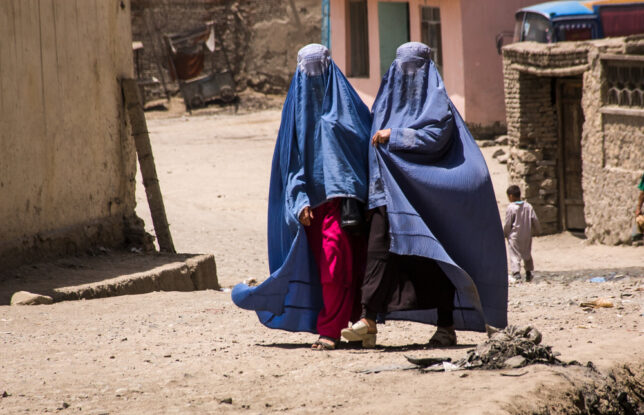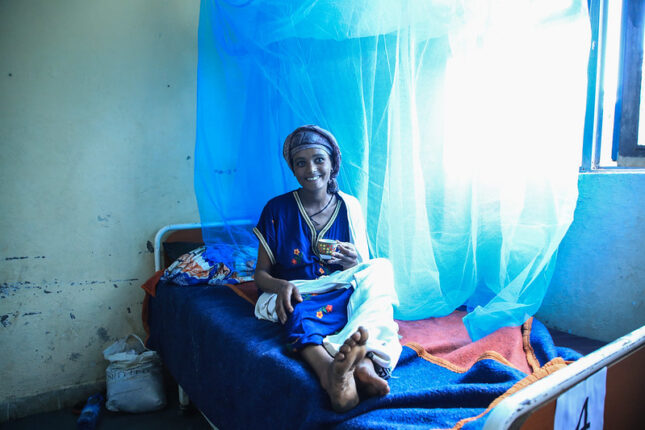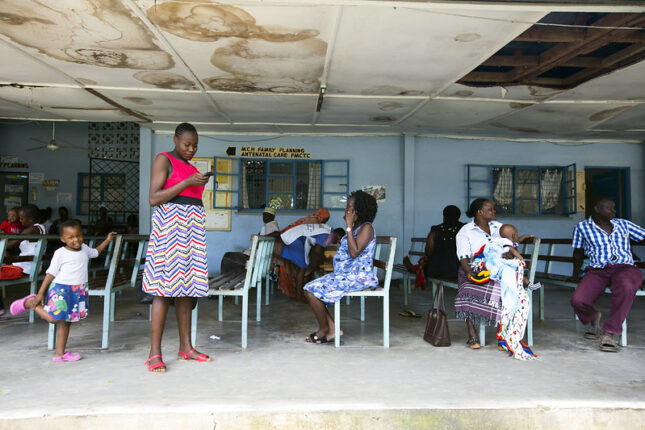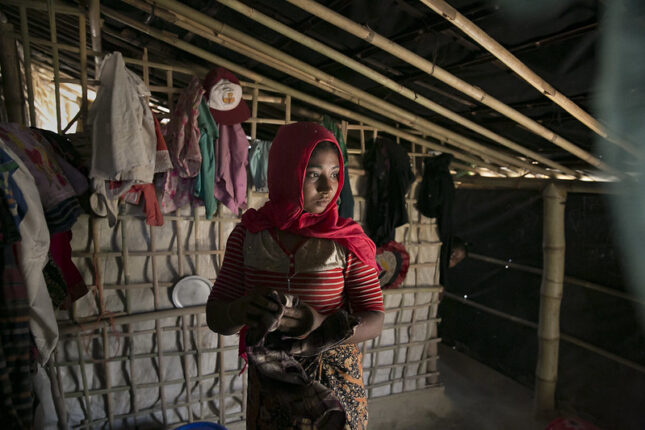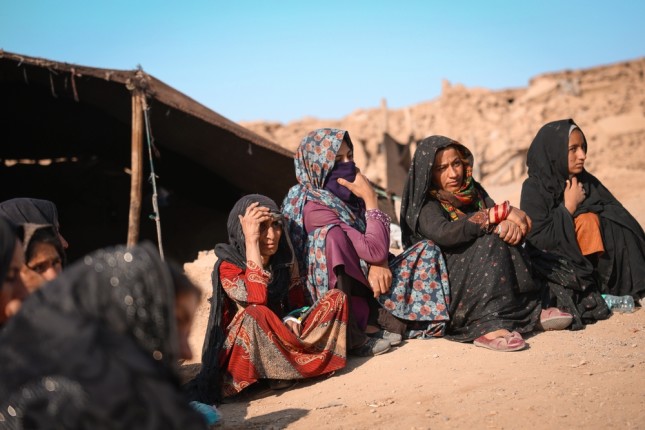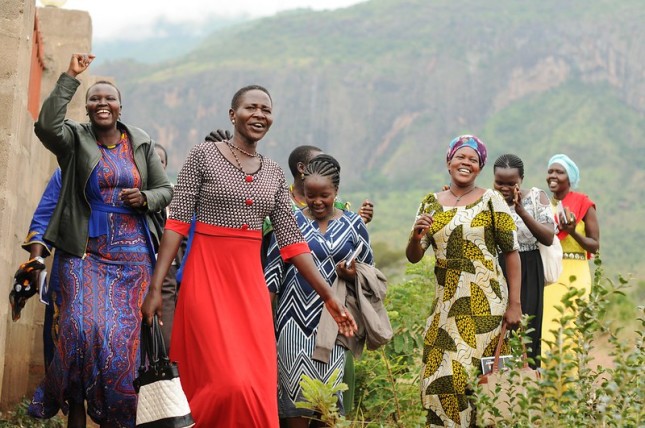-
REPORT LAUNCH | Population Trends and the Future of US Competitiveness
›From the Wilson Center // February 5, 2024 // By Jennifer Dabbs Sciubba, Lauren Herzer Risi & Sarah B. Barnes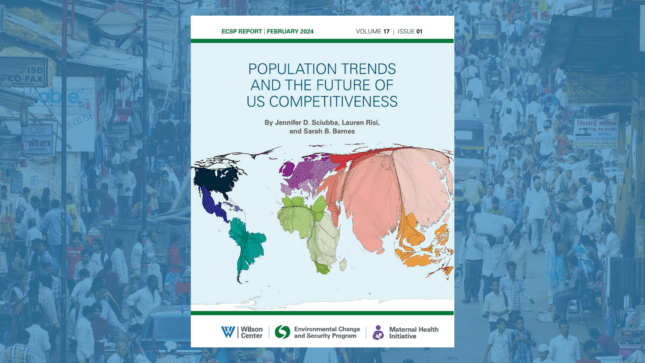
This article is adapted from “Population Trends and the Future of US Competitiveness”
Demographic issues intersect with a number of policy priorities on the congressional agenda, including the economy, immigration, health care and foreign policy, but how population trends influence policy outcomes is often overlooked or misunderstood. In a new report, we explore how population dynamics have changed dramatically over the last few decades, and what these changes mean for the economic and security interests of the United States.
-
Under the Veil of Oppression: The Agonizing Plight of Afghanistan’s Hazara Women
›
The recent arrests of women in Dasht-e-Barchi of Kabul, Daikundi province, and Jaghori district of Ghazni in Afghanistan by the Taliban for inadequate adherence to Islamic dress codes highlights a critical and distressing situation. These events are not an isolated occurrence. Rather, they are a reflection of the intensifying oppression and systemic threats faced by women in the country, particularly those from ethnic and religious communities such as the Hazaras.
-
Can Global Maternal Health Investments Help Eradicate Malaria?
›
The last two decades saw significant gains in reducing the incidence of malaria, but can we be doing even more to eradicate this disease? In early January 2024, a New York Times op-ed argued that millions were dying needlessly as tools to defeat malaria were within reach.
-
ECSP Weekly Watch | January 22 – 26
›A window into what we are reading at the Wilson Center’s Environmental Change and Security Program
World Groundwater Levels Face Accelerated Decline
Courtesy of Reuters, Reported by David Stanway and Edited by Tomasz Janowsk
Nature recently released a report revealing that global groundwater levels have undergone a widespread and accelerated decline over the past 40 years. Researchers concluded that this has likely occurred as a result of the impact of two factors: unsustainable irrigation practices in dry climates and drought driven by climate change.
-
Is Health Financing Gender Biased?
›
We take for granted the way health programs are financed—and often forget that there are biases in financing functions that undermine equitable access to health care.
For instance, through gender advances, women now decide on contraceptive use and childbearing. Yet the health financing related to those services tends to emphasize improving efficiency and optimizing resources, without necessarily aligning its objectives with gender equity or inclusivity.
-
New Global Health & Gender Policy Brief: Women and Girls in Wartime
›
Throughout history, women have played crucial leadership roles during wartime, even if their contributions were not always well-documented or recognized. In times of conflict, societal norms sometimes shift, allowing women to step into positions of authority that might have been traditionally reserved for men. Despite indisputable evidence of women’s leadership and bravery during conflict, however, women continue to be construed as “victims” and “passive actors”—rather than the political agents, leaders, soldiers, and visionaries that they are.
-
The Health Burden of the Afghan Woman: Navigating Challenges Amidst Calamity
›Dot-Mom // Guest Contributor // November 21, 2023 // By Massoma Jafari, Fatima Jafari, Faiza Rab & Ijia Ormel
In the rugged heart of Western Afghanistan, the people of Herat Province have been grappling since October 7, 2023 with a relentless barrage of aftershocks from a series of powerful earthquakes that surpassed 6.0 in magnitude. These seismic convulsions have left an indelible mark on this land and its people. After 40 years of almost-continuous conflict, Afghanistan already faces some of the world’s most alarming health statistics. The nation has one of the highest maternal mortality rates globally, with 638 deaths per 100,000 live births, as well as an infant mortality rate of 36 deaths per 1,000 live births.
-
Connecting the Dots to Gender Equality and Empowerment
›
“Women’s ability to access education, pursue a career outside the home, or participate politically often hinges on their ability to exercise control and autonomy over their own bodies and reproduction,” said Sarah Craven, Director of the North American Representation Office at UNFPA at a recent Wilson Center event, hosted in partnership with Population Institute, to launch their new report, Connecting the Dots: Sexual and Reproductive Health and Rights as Prerequisites for Global Gender Equity and Empowerment.
Showing posts from category gender.


